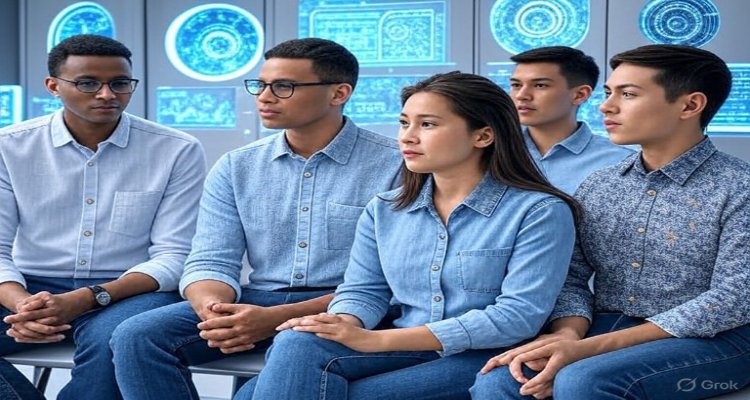Why People Trust AI More Than Humans in 2025—And Why That’s Dangerous

In 2025, people trust AI over humans for decisions in health, finance, and daily life. But rising dependence poses hidden risks society can’t ignore.
Introduction: The Paradox of Trust
In 2025, a striking paradox defines our world: people are placing more trust in artificial intelligence than in other humans. From choosing medical treatments to managing finances and even resolving personal disputes, AI is seen as more reliable, impartial, and efficient. But while this shift promises convenience and accuracy, experts warn that blind trust in machines could have dangerous consequences for society.
Context & Background: How We Got Here
The road to this moment has been paved by years of rapid advancements in machine learning, natural language processing, and generative AI. After the breakthroughs of 2023–2024, AI systems became integrated into critical sectors—healthcare diagnostics, financial planning, supply chain management, and even government decision-making.
At the same time, scandals involving human error, corruption, and misinformation eroded public confidence in traditional institutions. In contrast, AI, with its data-driven logic, appeared more transparent and less biased—at least on the surface. This perception fueled the belief that machines could be trusted where humans had failed.
Main Developments: Trusting Algorithms Over People
By 2025, surveys show that people now rate AI-generated recommendations as more trustworthy than human experts in several fields:
- Healthcare: Patients increasingly follow AI diagnostic tools over physician advice, believing machine-driven accuracy to be superior.
- Finance: Investors lean on AI trading algorithms and robo-advisors, sidelining financial consultants who are seen as emotionally driven.
- Justice Systems: Courts in some regions test AI tools to recommend bail or sentencing, raising questions about fairness and accountability.
- Everyday Life: From relationship counseling to career planning, individuals report feeling “safer” taking advice from AI rather than friends or mentors.
This surge in reliance underscores a cultural turning point: society is shifting its trust hierarchy from human experience to machine intelligence.
Expert Insight & Public Reaction
“AI has become the ultimate authority figure,” says Dr. Elena Ramirez, a digital ethics researcher at the University of Toronto. “The problem is, people forget that AI reflects human data, human biases, and human limitations—it’s not truly objective.”
Meanwhile, the public seems divided. Many embrace AI as a fairer and more efficient alternative, while others fear a future where human judgment is sidelined. Online forums reveal a growing unease: “If I don’t trust people, and I can’t question AI, who is really in control?” wrote one user in a widely shared post.
Impact & Implications: The Dangers of Blind Trust
While the appeal of AI-driven trust is clear, its risks are equally pressing:
- Bias at Scale: Algorithms learn from human data, which can embed existing social and cultural prejudices into decision-making.
- Accountability Gaps: When AI makes a harmful decision—such as a misdiagnosis—who is responsible: the developer, the user, or the machine itself?
- Erosion of Human Expertise: As trust shifts away from people, professionals may be undermined, leading to a dangerous over-reliance on technology.
- Manipulation Risks: Powerful AI systems, if misused, can steer public opinion, markets, or even political outcomes without transparency.
Experts argue that true trust should not rest on blind faith in technology, but on accountable, transparent, and human-centered AI governance.
Conclusion: Choosing Trust Wisely
Trust is one of society’s most valuable currencies. In 2025, as people increasingly place their faith in AI, we face a critical question: are we building a future guided by accountability and shared responsibility, or one where we outsource judgment to machines we don’t fully understand?
The answer may define not just how we interact with technology, but how we preserve the essence of human decision-making in an age dominated by algorithms.
Disclaimer : This article is for informational purposes only and does not serve as professional, legal, or financial advice. Readers should critically evaluate AI-driven tools and consult qualified experts where necessary.










